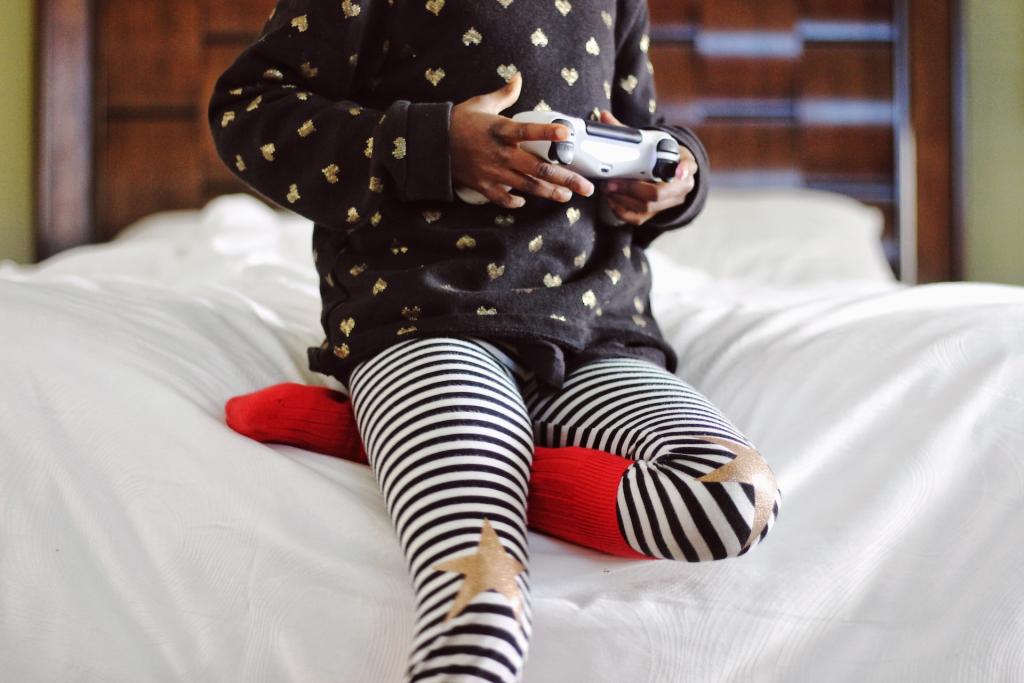Online gaming can be a lot of fun and surprisingly beneficial for children. As parents and carers, we should be aware of the benefits it offers, like developing their brains and encouraging creativity. We must also be mindful of the potential risks, such as exposure to inappropriate content and online bullies.
Our blog page explores how gaming isn’t only about entertainment for your child, it can also be good for their mental health!
It's important to be aware of both the benefits and challenges that come with gaming. Understanding the full picture will help you create a safe and balanced gaming environment for your child.
What is online gaming?

Gaming is a popular activity, particularly with children. Games can be played on lots of different devices. Consoles, apps, websites, mobiles, tablets, PCs, or smart speakers and virtual reality headsets. Children can also chat with other players using messaging platforms.
What are the benefits of online gaming?
- Gaming can be like a workout for your child's brain. Puzzle-solving games can help with critical thinking and problem-solving skills.
- Some games allow your child to play with their friends or meet new ones online. It's a chance for them to learn teamwork and sportsmanship.
- Gaming can be a wonderful way for your child to have fun and relax after a long day. It's like going on an adventure without leaving home!
What are the risks of online gaming?
- Not all games are suitable for your child. Some games may have violence or things that are not okay for them to see. It's essential to check the games your child plays to make sure they are okay.
- Your child may face mean or hurtful behaviour from other players, teach your child to block or report online bullying.
- It's easy for children to get addicted to games and play for hours. You should set limits and make sure they do not spend too much time gaming.
- Sometimes, children might share too much about themselves online without understanding the risks.
It's important to note that if your child has special educational needs and disabilities (SEND), they may need further support while playing games online.
They may find it hard to understand complex game content or have trouble with social interactions. They could be more vulnerable to cyberbullying and might make impulsive in-game purchases. Some games with overwhelming sights or sounds may bother them. They might also struggle with understanding privacy settings, putting them at a higher risk of encountering online dangers.
How can I keep my child safe when online gaming?

Keeping your child safe while gaming online is important. We have some tips to help you out:
- Choose games that are suitable for your child's age and maturity. Check the game's rating and content to make sure it's a good fit.
- Set clear and reasonable limits for gaming time. You want them to have fun, but balance is key! Encourage a healthy balance between online activities and choices of other activities they would like to do.
- Many devices have features to control what your child can do online. Take advantage of them to keep devices and software up-to-date and safe.
- Play games with your child, watch them play, and ask about their gaming experiences. It's a terrific way to connect and helps you understand the content and assess its suitability.
- Have a chat with your child about staying safe online. Remind them not to share personal information with strangers.
- Let your child know they can talk to you about anything, good or bad. If something bothers them online, they should feel comfortable sharing it with you.
- Keep an eye on your child's online friends and chat. Make sure they're being respectful to others.
- Some games have things you can buy. Make sure your child knows the spending limits or turn off the option to avoid costly surprises.
By setting boundaries, staying involved, and teaching your child about online gaming safety, you can ensure that your child has a safe and enjoyable gaming experience.
Further resources
UK Safer Internet Centre: advice on recognising and dealing with cyberbullying.
Childnet: information and guidance on a range of online safety topics.
Barnardo’s: support for parents and carers.
Internet Matters: expert advice on gaming addiction in young people and children.
If you are worried about online abuse or the way someone has been communicating with your child online, you can report it to CEOP Safety Centre Child Exploitation and Online Protection.
